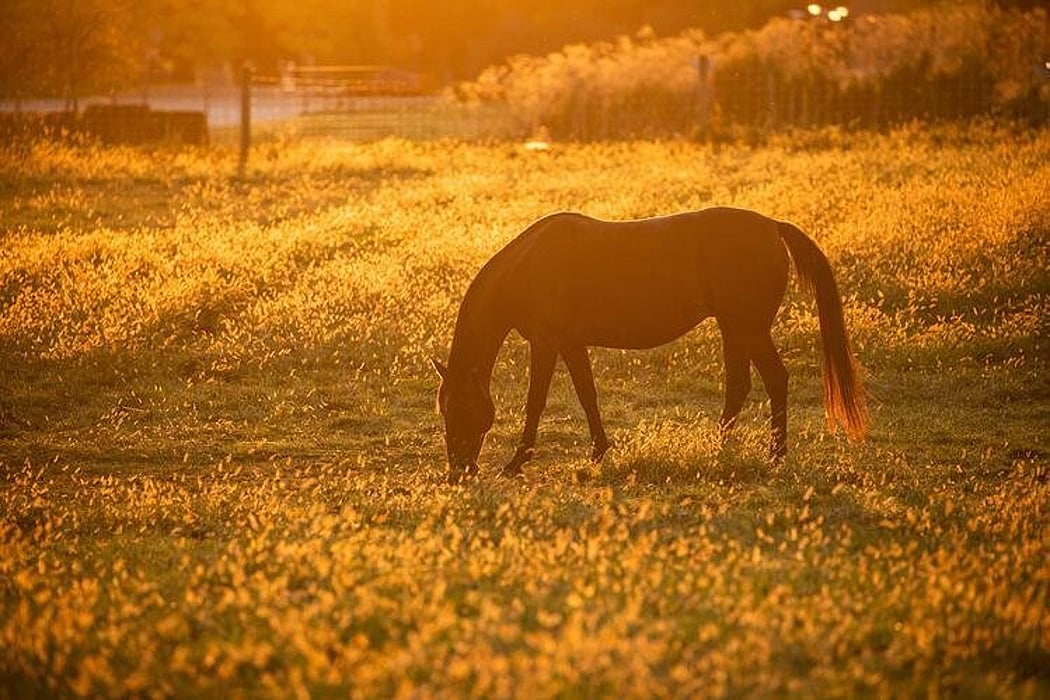Air Polluted With Wildfire Smoke Can Harm Animals, Too

FRIDAY, June 30, 2023 (HealthDay News) -- The Canadian wildfires that are burning out of control have brought hazy skies and polluted air to parts of the United States unprepared for it -- and that’s affecting not just the people, but their pets and livestock, too.
An animal welfare expert from the University of Illinois Urbana-Champaign offers some advice for animal caregivers to help them get their animals through these smoky days more safely.
“In this region, we’re not used to dealing with polluted air,” said Angela Green-Miller, an associate professor in the university's Department of Agricultural and Biological Engineering.
“We don’t typically have filtration in our houses or commercial indoor animal production facilities, although some poultry and pig facilities have implemented air filtration systems to control the spread of airborne diseases," she said in a university news release. "These filtration systems should help mitigate some of the air quality issues, putting them in a slightly better position. But for everyone else, we're not equipped to handle this situation."
Concerns for animals are similar to those for people, Green-Miller said. It’s important that they don’t overexert themselves so they can avoid breathing deeply and pulling pollutants into their lungs.
Don’t ride your horses, Green-Miller noted, so they won’t have to breathe more deeply.
“If you normally run with your highly active dog to get some of that energy out, maybe take a walk instead or toss a toy indoors,” she added. “And if you do have to go on that walk, keep monitoring weather conditions and pick a time of day when the air quality isn’t as bad. That’s the best we can do until the situation gets better."
In the meantime, farmers and pet owners should be watching for abnormal animal behavior while the smoky conditions continue.
“We might see animals behaving with a heightened sense of danger because smoke activates a flight response,” Green-Miller said.
“As humans, we know that smoke is coming from a fire that's hundreds of miles away and that we're in no real danger and don’t need to flee from it. Animals don't know that, so we may see flight responses engaged for some of our animals," she explained.
Among those behaviors could be more fearful responses, and potentially more defensive or aggressive postures, Green-Miller said.
“Again, there's really not much we can do to mitigate it, but, we certainly can be aware and think about how we interact and handle our animals so that we're not putting ourselves in danger,” she said.
The consequences of these days of polluted air are not likely to be long-term for most animals, Green-Miller noted, but those with preexisting respiratory conditions are at a higher risk of health complications.
More information
The U.S. Centers for Disease Control and Prevention has more on the health hazards of wildfire smoke.
SOURCE: University of Illinois Urbana-Champaign, news release, June 28, 2023
Related Posts
2005 to 2019 Saw Rise in Cannabis-Related Emergency Visits for Older Adults
MONDAY, Jan. 30, 2023 (HealthDay News) -- The rate of cannabis-related emergency...
Peresolimab Found to Be Efficacious for Rheumatoid Arthritis
THURSDAY, May 18, 2023 (HealthDay News) -- Peresolimab, a humanized...
Game Show Legend Bob Barker Died of Alzheimer’s Disease
THURSDAY, Sept. 7, 2023 (HealthDay News) – Game show host Bob Barker died in...
Your Liver Is Just 3 Years Old
WEDNESDAY, June 1, 2022 (HealthDay News) -- No matter how old you are, your...
